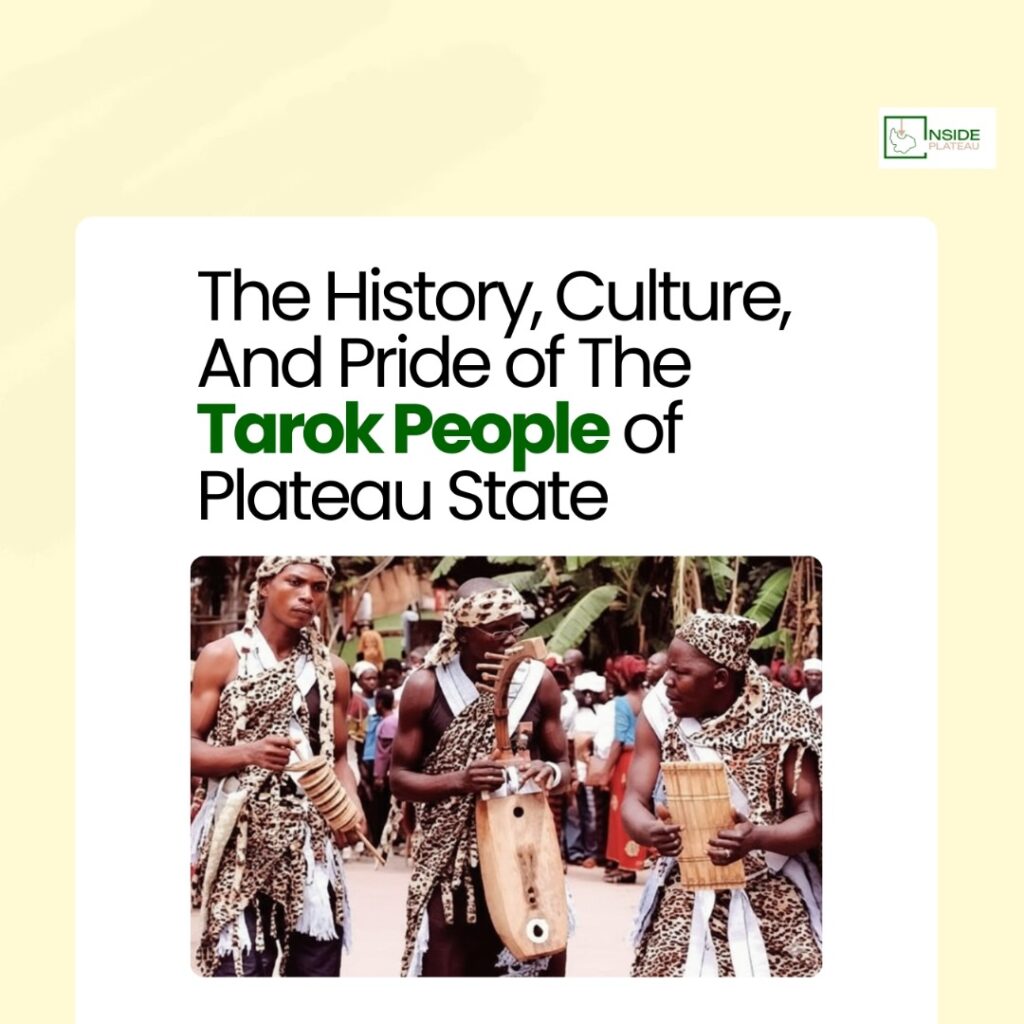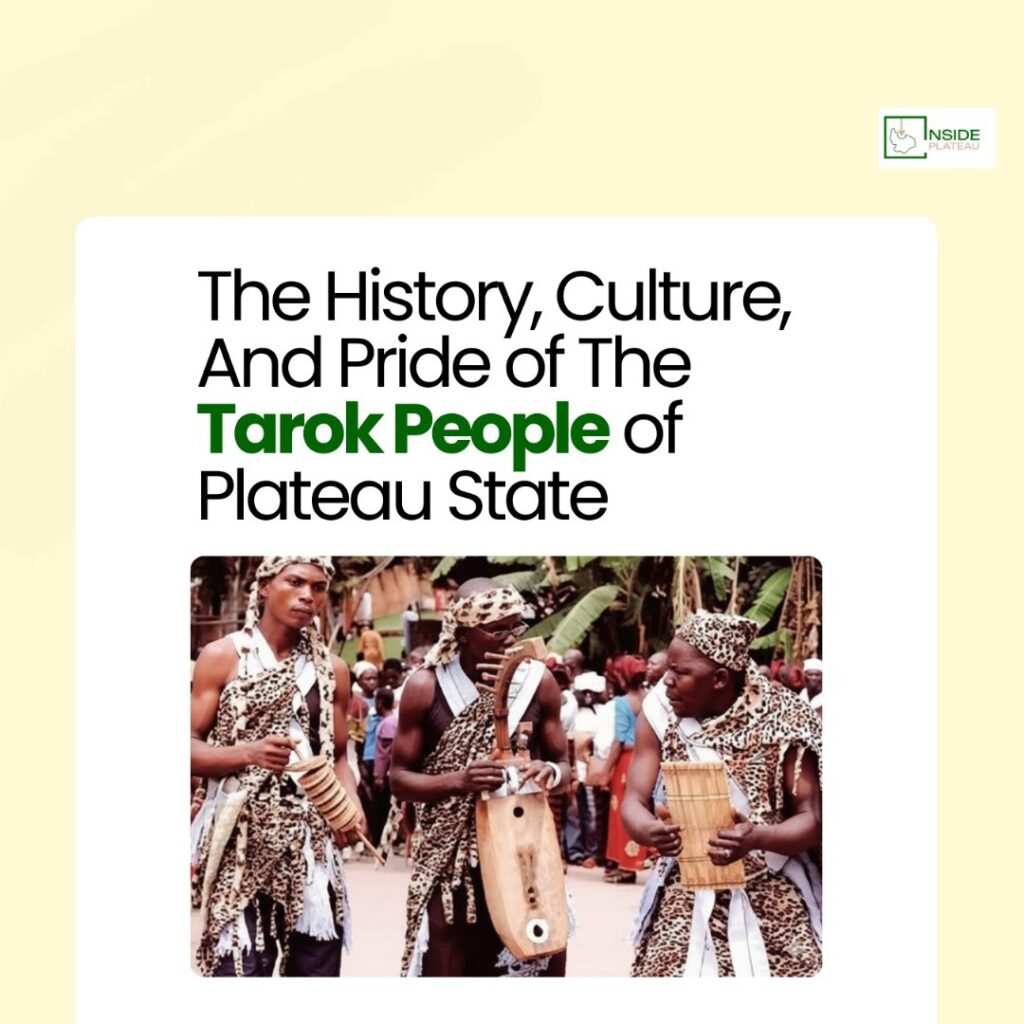
The Tarok people, who proudly call themselves ‘O’Tárók’, are a lively and strong ethnic group who mostly occupy the southern part of Plateau State, Nigeria. They are mainly found in areas like Langtang-North, Langtang-South, Wase, Mikang, and Kanke Local Government Areas of the State.
The Tarok people are popularly known for their tough spirit, deep culture, strong love for one another, and their big role in Nigeria’s military. They are also a key part of what makes Plateau State very special, with their traditions blending old ways with modern life. If you’re curious about Tarok history, Tarok culture, or the pride of the Tarok people, this article dives deep into their story to show why they’re so unique.
The Origin and History of the Tarok People
The story of the Tarok people is beautiful like a colorful blanket that is made from different threads. Over time, they became one united ethnic group, but their roots come from various places. According to some Oral stories passed down through generations, the name “Tarok” is believed to have come from “Tal,” linking them to the Tal people in Pankshin LGA of Plateau State.
Other tales trace their origins to central or southern Africa as part of the Bantoid group, or even ties to Middle Eastern locations like Yemen or Egypt. However, language experts point to the Mama/Wamba regions of Nasarawa State as their original homeland, with their language iTárók part of the Plateau group in the Atlantic-Congo family.
The Tarok ethnic group is formed from a blend of different groups, including the Pe, Ngas, Jukun, Boghom, Tel (Montol), and Tal. They settled together over the centuries. Their migration to what is now today’s Tarokland happened in stages, with clans like the Zinni, Namurang, and Gunnung creating important villages in places like Gunnung Village. This blending created a strong, homogeneous society.
One part of the Tarok history that Strands out is their warrior tradition. They fought so hard against jihadists in the past, showing true resilience. During the colonial era and after Nigeria’s independence, the fighting spirit grew. Tarokland has given Nigeria more high-ranking military officers than you’d expect considering its size. This military legacy is a great source of pride and it has put the Tarok nation on Nigeria’s map. Today, they’re also found in parts of Taraba State, further spreading their influence.
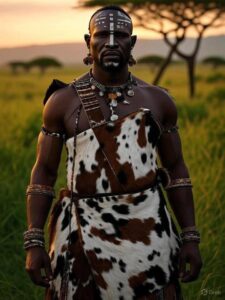
Notable Tarok Figures: A Legacy of Leadership
The Tarok nation has produced several leaders who shine in Nigeria’s history, especially in the military. Langtang is often called the “Home of Generals” because many top ranking officers come from there. These include :
1. General Domkat Bali: He who served as Minister of Defence and as Chairman of the Joint Chiefs of Staff from 1984 to 1990. He was also the Ponzhi Tarok, the traditional ruler, until his death in 2020.
2. General Jeremiah Useni: He was Minister of the Federal Capital Territory and a key military figure. Popularly known in the state as ‘Baba mai tuwo’
3. General Joshua Dogonyaro
4. General Joseph Nanven Garba
5. General John Nanzip Shagaya.
6. Lt. Colonel James Yakubu Pam, one of Nigeria’s first military officers
In politics, they boast of very notable people like:
1. Solomon Dalung: He was a former Minister of Youth and Sports
2. Beni Lar: A House of Representatives member and popular name in Plateau State politics.
These leaders highlight the Tarok’s discipline, courage, and service to Nigeria.
Language and Distinctive Identity of the Tarok
The Tarok call their homeland ìTàrók and their language iTárók. It’s used as a common tongue in the southeastern parts of Plateau State. And though they’re surrounded by Chadic-speaking neighbors, iTárók is a Benue-Congo language, and that sets them apart. In the past, outsiders called them Yergam and the Jukun used “Appa” as a friendly term to refer to them.
Keeping iTárók alive is key to their identity. It’s not just words—it’s a way to hold onto their roots in a changing world. The language even has special uses, like in the Orim cult, where ancestral spirits communicate in a unique way.
Cultural Expressions: Lifestyle, Art, Music, and Dance
The lifestyle of the Tarok ethnic group is mainly farming. They’re hard-working farmers who grow crops like guinea corn, maize, millet, yam, rice, cassava, beans, and groundnuts. But they do more than just farming—they’re skilled in other aspects like blacksmithing, carving, fishing, hunting, and even mining local salt using traditional methods. Their homes–often unique with architecture, stand as symbols of their commitment to their heritage.
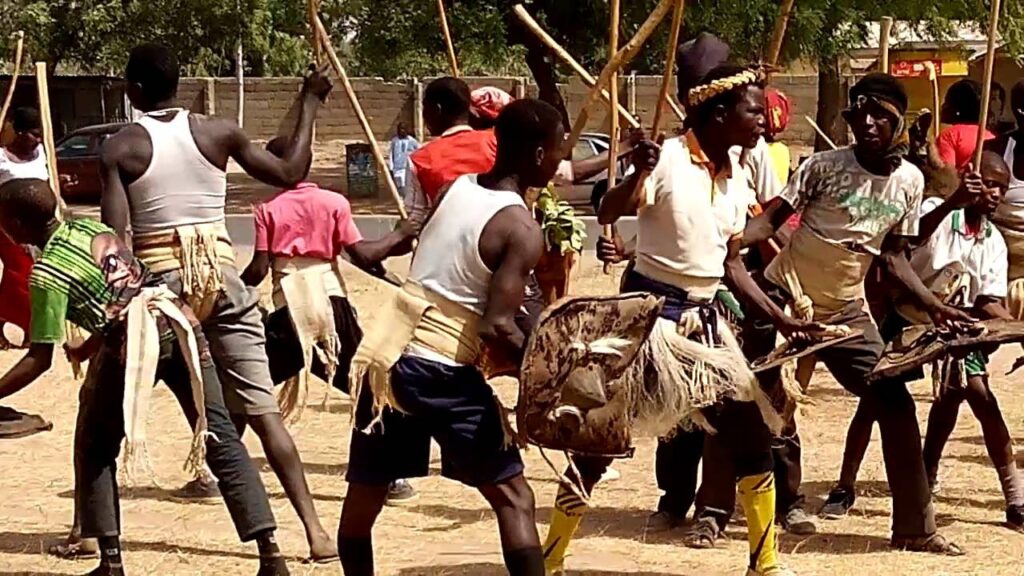
Art, music, and dance are critical in Tarok culture. They have vibrant masquerade dances that bring big energy to their celebrations. Their traditional music features songs that tell stories, praise heroes, or mark events. Artists like Princess Salvation Holy create beautiful Tarok music videos that keep their sounds alive. Their dances often involve the whole community, with their steps showing joy, strength, and unity. These elements make Tarok gatherings and festivals fun and full of life, drawing people together.
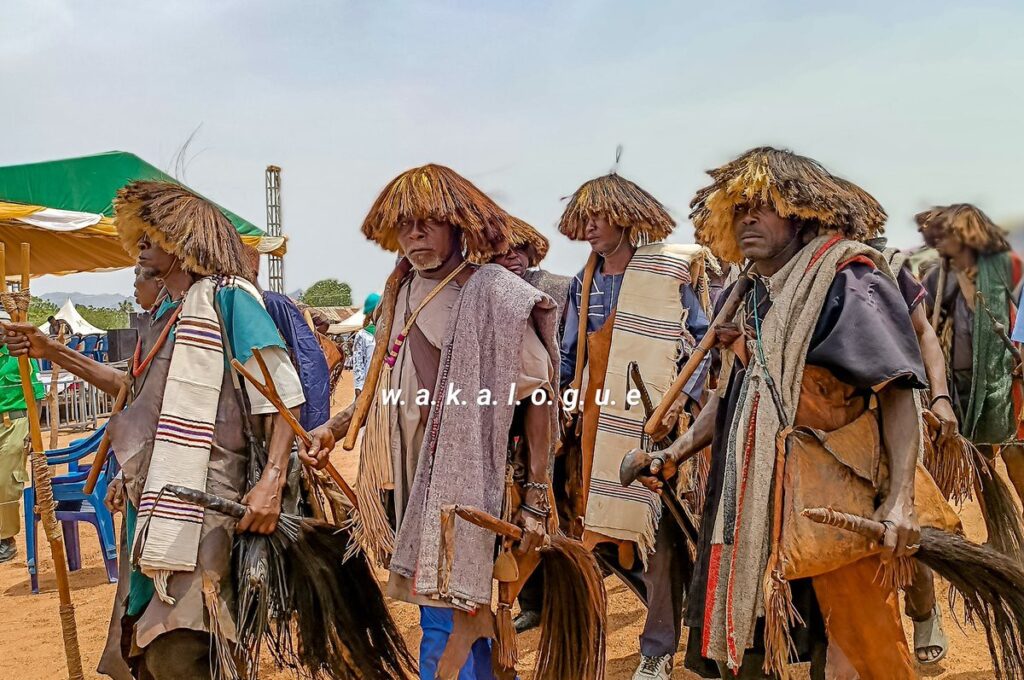
The Tarok are also known for their great hospitality. Visitors are welcomed warmly, reflecting their friendly nature. However, they’re tough though—taboos and customs guide their behavior, like respecting elders or avoiding certain actions to maintain peace. Burial customs are also special, sometimes it involves rituals to honor ancestors.
Traditional Leadership and Religion Among the Tarok
Before colonialism and Christianity came in 1904, Tarok communities were independent. Each of over 20 sub-clans had a leader called the Ponzhi Nbin, handling both spiritual and political matters.
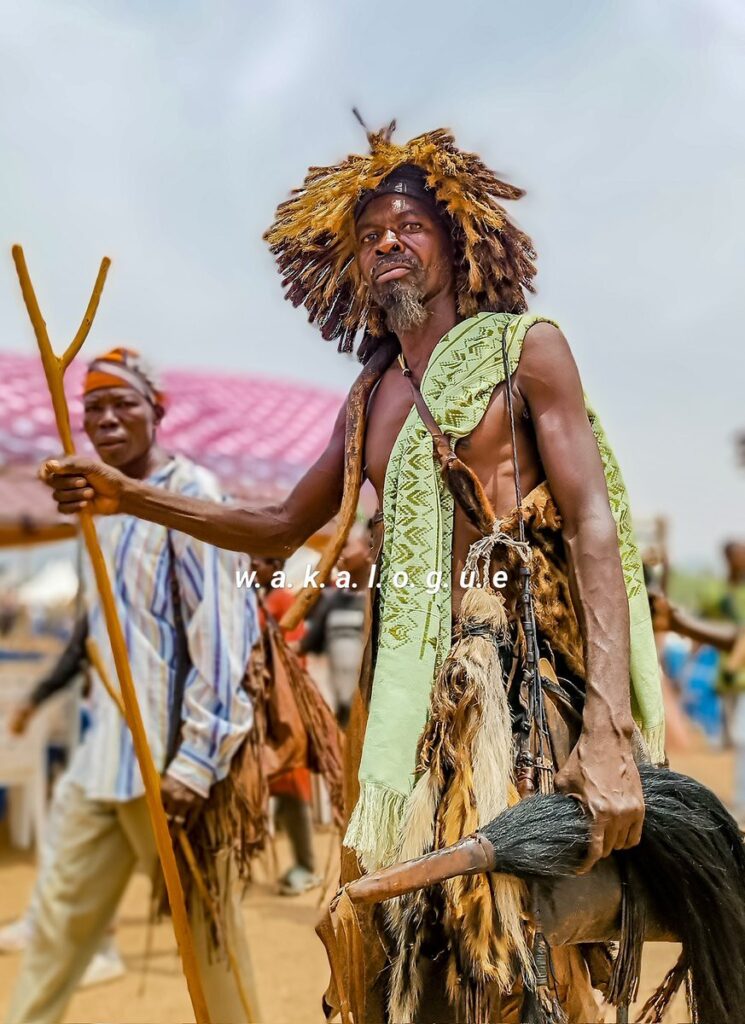
The heart of their traditional beliefs is the Orìm cult, where ancestors (ùrìm) are honored. Initiated men and women past menopause represent them in sacred groves. The Orìm keeps order, initiates boys, and makes decisions, using voice disguisers most times. Even though most Tarok are now Christians, the Orìm still commands respect, portraying how they blend old and new.
The Role of Women in Tarok Society
Tarok women are the unsung heroes of their community. They’re the backbone of the economy, they lead in agriculture, trade, and commerce.From the 1940s to 1990s, they took charge of food crops while men engaged in tin mining, they kept their families fed and markets buzzing. Women always use songs to interpret situations, even during wars, making them very vital in tough times.
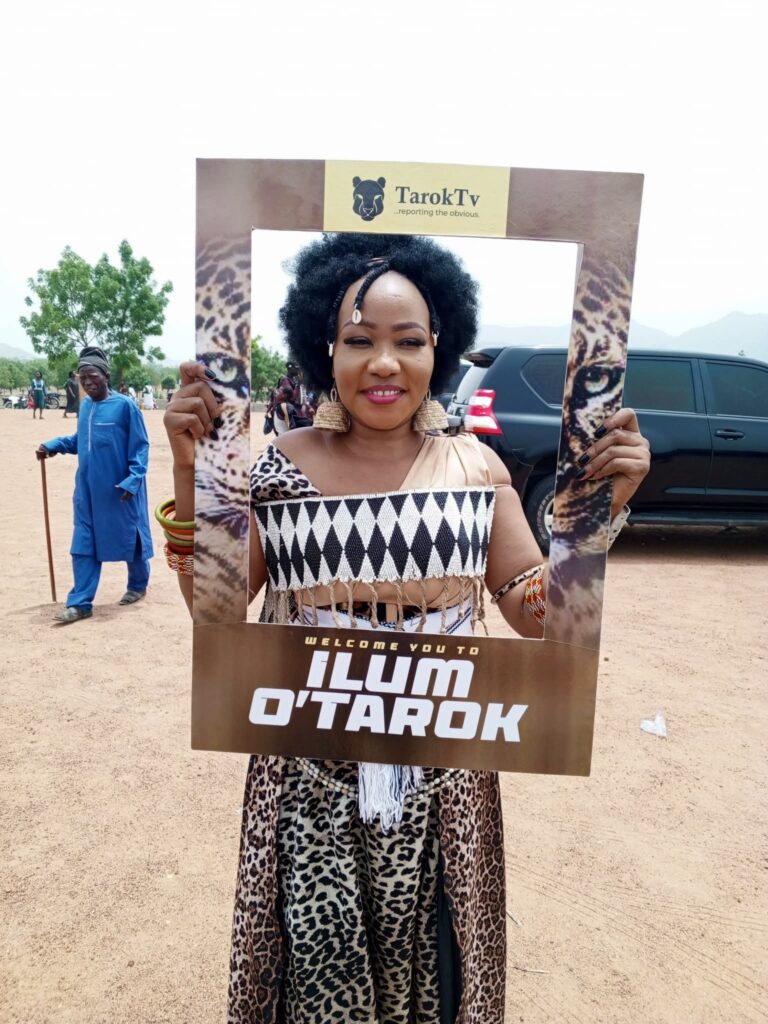
However, challenges exist, for instance unequal marriage rights and family planning. Despite this, Tarok women show real courage, working hard through pregnancy and contributing to social growth. Today, they occupy positions of decision-making, further proving their strength.
Food and Culinary Heritage of the Tarok
Tarok food shows off their farm riches. A favorite is Amwam (or Amora in Hausa), a tasty porridge made from plants like cocoyam. You peel, dry, and grind the starch, then cook it with either liver, dried fish, onions, peppers, crayfish, and palm oil for a thick, yummy dish.
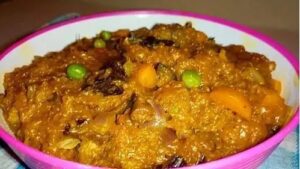
Other Tarok meals include various soups like agbantar (groundnut soup) and izhin. They also consume zogale (moringa) and dishes made with locally available proteins.
The Tarok people have a preference for snake meat, which is included in their diet.
Festivals: Celebrating Tarok Pride
Festivals connect the Tarok people with their past. The big one is Ilum O’Tarok, held yearly in Langtang. It’s a big occasion with traditional dances, music, and cultural displays that unite everyone. Governors often attend, signifying its importance.
Other Clan events like the Gbak Day, Nimbar Day, Gani Day, Bwarat Day, and Gazum Day offer more ways to celebrate heritage.
These aren’t just for fun—they’re a bold display of Tarok spirit and unity.
Modern Life and Challenges for the Tarok People
Today, Tarok people blend their rich tradition with the modern ways. The majority are still farmers, but others are in the military, politics, and business. Their population spreads across Plateau State and beyond, and faces issues like balancing modern development needs and keeping their culture alive. Christianity is strong in the Tarok Nation, but their rich ancestral customs still endure.
Pride runs deep, especially in their military contributions and their resilient nature. They’re known as warriors who don’t beg but always stand firm.
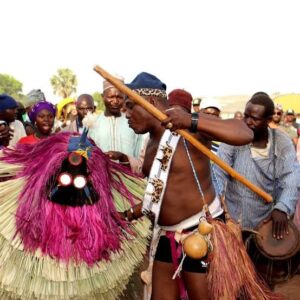
The Enduring Spirit of the Tarok People
The Tarok people of Plateau State possess great strength, unity, and pride. From their mixed origins, warrior history, to rich festivals, music, and the vital role of women, they greatly shape Nigeria’s Middle Belt. As they embrace modern life, their culture still remains a symbol of heritage. Tarok history and culture shows people full of life and determination. They’re a great treasure, not just for Plateau State, but Nigeria at large.

